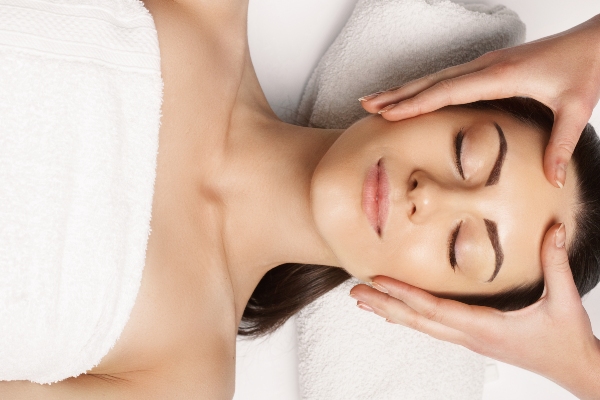 Chemical peels rejuvenate the skin, making them a popular choice at medical spas. This skincare treatment may help refresh your complexion, smooth out wrinkles, correct acne scars, and more. Our medical spa technicians can help select a chemical peel that empowers you to reach your skincare goals.
Chemical peels rejuvenate the skin, making them a popular choice at medical spas. This skincare treatment may help refresh your complexion, smooth out wrinkles, correct acne scars, and more. Our medical spa technicians can help select a chemical peel that empowers you to reach your skincare goals.
What is a chemical peel?
With a chemical peel, FDA-approved chemicals penetrate various layers of the skin, causing the skin to peel away to reveal the more youthful-looking skin underneath. This is why chemical peels are also known as dermapeeling.
How is a chemical peel different from a facial?
A chemical peel is not the same as a facial, although the two have some similarities. Both of these skincare treatments can heal sun damage and fight acne. With a facial, the skin is exfoliated and then moisturized. A chemical peel goes deeper — literally. Depending on the chemicals used, peels reach into various layers of the skin, causing it to peel and ultimately revealing fresher skin. This gives peels a few added benefits over facials: Peels can also reverse aging signs and correct issues with pigmentation or complexion.
Why get a chemical peel?
Patients may opt for a chemical peel for many reasons. Their specific reason will help the medical spa determine which type of peel is best for them. Some of the most common reasons why patients get a peel include:
- Minimizing fine lines and wrinkles
- Clearing up acne and acne scarring
- Evening out dark patches
- Toning one’s complexion
- Removing sun spots and liver spots
- Removing precancerous growths (actinic keratosis)
Chemical peel options
There are many different types of chemical peels, each using a different chemical to penetrate a different layer of the skin. All of them are applied topically as an outpatient procedure. Still, medical spas categorize these peels based on their strength. Take a look at the different chemical peels listed below.
Lunchtime peel
A lunchtime peel, or a light chemical peel, uses alpha-hydroxy acid (AHA) to reach into the outermost skin layer. As such, it is mainly for mild skin problems, such as a mildly uneven complexion, mild fine lines, rough patches, and certain types of acne.
Medium peel
For moderate skin problems, a medical spa may recommend a medium chemical peel. These peels use slightly harsher chemicals (glycolic or trichloroacetic acid) to penetrate past the outermost skin layer and into the upper middle layer of the skin. Medium peels may help correct skin discoloration, deep fine lines, and even moderate wrinkles.
Deep peel
Deep chemical peels use strong chemicals to penetrate into the lower middle layer of skin and correct severe skin problems. Common examples include actinic keratosis and sun damage. Trichloroacetic acid, or TCA, is most commonly used for these types of peels.
Book a chemical peel today
Want to learn more about how a chemical peel can help rejuvenate your skin? Call our Swansea medical spa for a consultation. We look forward to helping you achieve healthier, glowing skin.
Request an appointment or call Aesthetica at 508-637-5555 for an appointment in our Swansea office.
Related Posts
Medical spas, or med spas, offer comprehensive approaches to caring for your skin. Their services can address different skin concerns one may be experiencing. The services are specially formulated for each patient and can vary from non-invasive to moderately invasive.Facials are fundamental and versatile, involving deep cleansing, exfoliation, and skin moisturizing. They aim to remove…
A medical spa can provide many treatments that can improve your health and your self-esteem. This facility can relax you and improve your well-being at the same time. Knowing what they are can help you prepare for your appointment. Here are some services that your local medical spa may offer.This medical spa service is a…
Medical spas are becoming increasingly popular destinations for those looking to unwind and enhance their health and appearance. These practices are unique in their ability to offer advanced medical aesthetic and wellness services in a relaxing and pampering day spa environment. In addition, physicians and other medical professionals oversee the treatments to ensure safety and…
